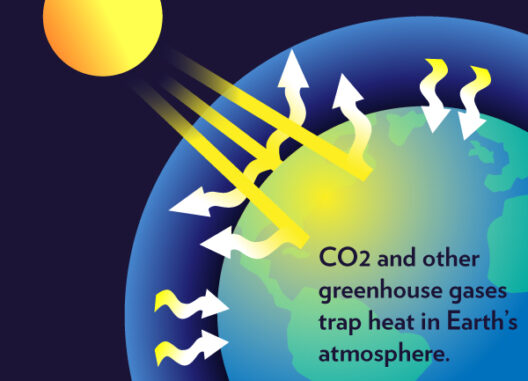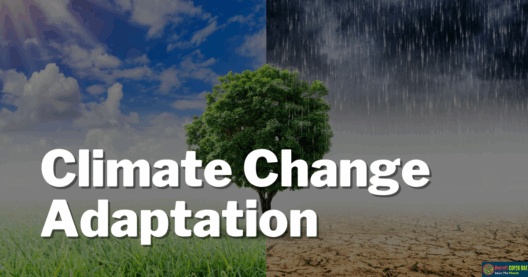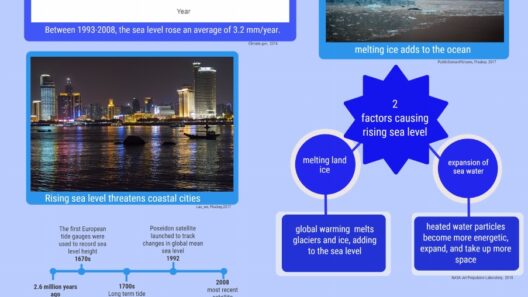As sea levels continue to rise, the repercussions reverberate through ecosystems, economies, and communities around the globe. Understanding the intricacies of how rising oceans impact us personally and collectively is crucial for fostering informed discussions and necessary action.
Rising sea levels, driven primarily by climate change, are the result of two main factors: the thermal expansion of seawater as it warms and the melting of glaciers and ice sheets. These phenomena not only threaten coastal regions but also have broader implications that span environmental, economic, and social dimensions.
In this exploration, we will dissect the multifaceted consequences of rising sea levels, analyzing the intimate ways they affect individual lives as well as their global ramifications.
Environmental Implications: An Ecosystem in Distress
The most immediate consequences of rising sea levels are palpable in coastal ecosystems. Saltwater intrusion into freshwater resources compromises drinking water supplies and agricultural viability, posing significant challenges for those reliant on these essential resources. Coastal vegetation, including critical wetlands and mangrove forests, is increasingly jeopardized, disrupting habitats for myriad species and exacerbating the loss of biodiversity.
Moreover, the erosion of coastlines accelerates as sea levels rise, leading to the disappearance of land. This not only affects natural habitats but also threatens human infrastructure located near or on the shore. Infrastructures such as roads, bridges, and port facilities face mounting risks of flooding and damage, affecting national economies that depend on these vital transportation networks.
Habitats along coastlines are particularly vulnerable to erosion, which decreases the natural buffer against severe weather events. As storms become more frequent and severe—a phenomenon intrinsically related to climate change—those living in low-lying, coastal areas are at an increased risk. The combination of higher sea levels and intensifying storms creates a perfect recipe for disastrous flooding, leading to property loss and increased displacement of communities.
Economic Consequences: The Cost of Rising Waters
The economic fallout from rising sea levels can be staggering. Property values in coastal areas have already started to decline in anticipation of future risks, resulting in substantial financial losses for homeowners and investors alike. Cities such as Miami, New York, and New Orleans are grappling with the inevitable impacts, leading to decreased tax revenues and increased financial pressure on local governments.
Insurance companies are also feeling the effects, adjusting their policies and rates to accommodate the increasing risks associated with climate change. Higher premiums and reduced coverage options can place an additional burden on homeowners, further destabilizing markets. In many cases, homeowners face the daunting reality of being underinsured or facing unmanageable repair costs from flooding.
The tourism industry stands on shaky ground as well. Areas that depend on thriving coastal tourism face the specter of beach erosion and increased flooding. Destinations may become less appealing, threatening jobs and livelihoods. Communities that once prospered from tourism could find their economies severely diminished.
Societal Challenges: The Human Toll
The social ramifications of rising sea levels extend far beyond environmental and economic concerns. As homes become inundated and neighborhoods are swallowed by rising tides, the resulting displacement can lead to populations becoming climate refugees. This phenomenon not only disrupts lives and communities but also poses significant challenges for receiving regions, which must absorb an influx of displaced individuals seeking safety and stability.
Increased inequality is another disquieting impact of rising seas. Vulnerable populations—often socioeconomically disadvantaged—are disproportionately affected, lacking the resources to adapt or relocate. Their struggles are exacerbated by systemic inequities in access to infrastructure, healthcare, and education, leading to greater social strife as communities attempt to cope with the realities of rising oceans.
Furthermore, mental health issues can arise from the psychological toll of losing homes, livelihoods, or ancestral lands, leaving individuals in a state of distress and uncertainty. The community bonds that once sustained individuals may fray, leading to isolation and despair.
Mitigation and Adaptation Strategies: Navigating the Future
Addressing the challenges posed by rising sea levels requires a multifaceted approach that encompasses mitigation and adaptation strategies. On a global scale, reducing greenhouse gas emissions remains a critical component of addressing climate change. Transitioning to renewable energy sources, promoting sustainable practices, and advocating for policies that prioritize environmental stewardship are all vital steps in the right direction.
At a local level, communities can explore adaptive measures, such as enhancing coastal defenses through the construction of barriers or restoring natural ecosystems like wetlands that act as buffers against storm surges. Urban planning must prioritize resilience, investing in infrastructure that can withstand the changing climate.
Education and public awareness are also essential. Empowering communities with knowledge about risks and potential responses can foster a culture of preparedness and informed decision-making. Engaging individuals and communities in discussions surrounding climate adaptation can stimulate action and collective resilience.
As we confront the reality of rising sea levels, a united front of environmental action becomes paramount. Understanding how these changes affect us on both personal and global scales can galvanize individuals into meaningful action, creating a sustainable and resilient future for generations to come.







